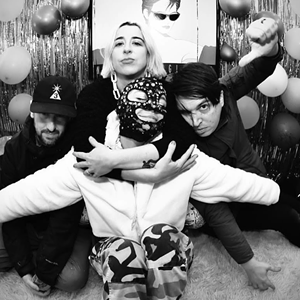The other side of the Andes
[
{
"name": "Air - MedRect Combo - Inline Content 1",
"component": "14680855",
"insertPoint": "7",
"requiredCountToDisplay": "5",
"parentWrapperClass": "fdn-ads-inline-content-block"
},{
"name": "Air - MedRect Combo - Inline Content 2",
"component": "14680856",
"insertPoint": "15",
"requiredCountToDisplay": "9",
"parentWrapperClass": "fdn-ads-inline-content-block"
},{
"name": "Air - SVP - Leaderboard - Inline Content - 2",
"component": "16852291",
"insertPoint": "10",
"requiredCountToDisplay": "10",
"parentWrapperClass": "fdn-ads-inline-content-block"
},{
"name": "Air - SVP - Leaderboard - Inline Content - 3",
"component": "16852292",
"insertPoint": "20",
"requiredCountToDisplay": "18",
"parentWrapperClass": "fdn-ads-inline-content-block"
},{
"name": "Air - SVP - Leaderboard - Inline Content - 1",
"component": "16852290",
"insertPoint": "25",
"requiredCountToDisplay": "22",
"parentWrapperClass": "fdn-ads-inline-content-block"
}
]
Most of us associate the music of Peru with the familiar lilt of the double-decked Andean panpipes, perhaps accompanied by sprightly upbeat rhythms on a guitar.
However, the musicians of Peru Negro play music from a different -- and vastly underrated -- genre of South American music: The music of Peruvians of African heritage.
The music of slaves and the descendants of slaves, Peru Negros artistry combines the native rhythms of Africa with a Spanish flair and the melodies of South Americas indigenous peoples.
While Africans in the New World gained many well-documented musical footholds Cuba and Brazil being the most celebrated examples the musical legacy of Africa in Peru never gelled as well. Slaves in Peru were brought from a wide variety of regions in Africa, making cultural continuity much less prevalent.
Initially an ensemble of 12 family members, Peru Negro has grown into a group of more than 30 performers. The Lima-based ensemble runs its own school as well as a junior troupe, Peru Negrito.
We spoke with Peru Negro producer and manager Juan Morillo while the group was playing a series of gigs in California.
Connect Savannah: Tell us about the African roots of Peru Negros music.
Juan Morillo: The history of Africans in Peru is not well-documented. There was an African presence at all levels of Peruvian culture at one point. During colonial times there were more blacks in Lima than whites and Hispanics.
Connect Savannah: How does that genre differ from more typical Andean music?
Juan Morillo: The African element is very strong. Of course, rhythm plays an essential part, whereas in other Peruvian music the melody is more important.
Connect Savannah: Is the instrumentation a lot different as well?
Juan Morillo: Theres the Peruvian horn, which is basically a wooden box. And the cajon is a drum you sit on top of, and play one of the sides.
Connect Savannah: Apparently this kind of music was enough of a cultural threat to the Spanish overlords of Peru that drums were outlawed.
Juan Morillo: Well, in colonial times all the institutions of Spain were duplicated in Peru. One of those institutions was the Inquisition. They banned the use of drums, and that eventually led to the birth of the cajones.
Connect Savannah: Is a music festival a fairly typical performance for Peru Negro, or is this somewhat unique?
Juan Morillo: We do U.S. tours, usually at festivals and theatres. Were playing for 1900 people at UC Berkeley tonight. And about that many at UC Santa Cruz.
Were happy to finally play in the South. Our tours usually take place on the east and west coasts. Were finally making more inroads in the South.
Connect Savannah: What can concertgoers expect when they come see Peru Negro?
Juan Morillo: They can expect music and dance. Members of the group alternate between playing songs and staging dances. There are points where the dancers play music and the musicians dance. Its a very interactive experience onstage.
Peru Negro performs at the Lucas Theatre March 19 and 20 at 7 p.m. For tix and info go to www.savannahmusicfestival.org
However, the musicians of Peru Negro play music from a different -- and vastly underrated -- genre of South American music: The music of Peruvians of African heritage.
The music of slaves and the descendants of slaves, Peru Negros artistry combines the native rhythms of Africa with a Spanish flair and the melodies of South Americas indigenous peoples.
While Africans in the New World gained many well-documented musical footholds Cuba and Brazil being the most celebrated examples the musical legacy of Africa in Peru never gelled as well. Slaves in Peru were brought from a wide variety of regions in Africa, making cultural continuity much less prevalent.
Initially an ensemble of 12 family members, Peru Negro has grown into a group of more than 30 performers. The Lima-based ensemble runs its own school as well as a junior troupe, Peru Negrito.
We spoke with Peru Negro producer and manager Juan Morillo while the group was playing a series of gigs in California.
Connect Savannah: Tell us about the African roots of Peru Negros music.
Juan Morillo: The history of Africans in Peru is not well-documented. There was an African presence at all levels of Peruvian culture at one point. During colonial times there were more blacks in Lima than whites and Hispanics.
Connect Savannah: How does that genre differ from more typical Andean music?
Juan Morillo: The African element is very strong. Of course, rhythm plays an essential part, whereas in other Peruvian music the melody is more important.
Connect Savannah: Is the instrumentation a lot different as well?
Juan Morillo: Theres the Peruvian horn, which is basically a wooden box. And the cajon is a drum you sit on top of, and play one of the sides.
Connect Savannah: Apparently this kind of music was enough of a cultural threat to the Spanish overlords of Peru that drums were outlawed.
Juan Morillo: Well, in colonial times all the institutions of Spain were duplicated in Peru. One of those institutions was the Inquisition. They banned the use of drums, and that eventually led to the birth of the cajones.
Connect Savannah: Is a music festival a fairly typical performance for Peru Negro, or is this somewhat unique?
Juan Morillo: We do U.S. tours, usually at festivals and theatres. Were playing for 1900 people at UC Berkeley tonight. And about that many at UC Santa Cruz.
Were happy to finally play in the South. Our tours usually take place on the east and west coasts. Were finally making more inroads in the South.
Connect Savannah: What can concertgoers expect when they come see Peru Negro?
Juan Morillo: They can expect music and dance. Members of the group alternate between playing songs and staging dances. There are points where the dancers play music and the musicians dance. Its a very interactive experience onstage.
Peru Negro performs at the Lucas Theatre March 19 and 20 at 7 p.m. For tix and info go to www.savannahmusicfestival.org



























